Interview: Edu Grau on "Passing", queer cinema, and first time filmmakers
 Friday, January 28, 2022 at 9:00PM
Friday, January 28, 2022 at 9:00PM by Nathaniel R

Black and white photography has been the hot trend this past year. Despite that, the incredibly specific and resonant visuals of Passing have been underdiscussed. Some of that we attribute to the quiet nature of the film itself; the watchful, perpetually anxious drama focuses on Irene (a splendid Tessa Thomson) a woman in 1920s Harlem who is shocked to discover that her childhood friend Clare (brilliant Ruth Negga) is living as a white woman, and not just "passing" but boastful about her subterfuge and marriage to a proud racist (Alexander Skarsgård).
We were thrilled to meet with the cinematographer Edu Grau to discuss his fascinating movie. We broke the ice talking about his changing name in film credits. With a self-deprecating laugh he explained that he went by Eduardo at the beginnign of his career because it sounded more serious but changed his mind. "Only the police use Eduardo," he says laughing "Everyone calls me Edu". There are a lot of Edwards and Eduardos in America, he adds, reasoning "Edu is more special!" The Film Experience agrees and suggests that people should commit the name to memory...
[This interview has been edited for length and clarity...]
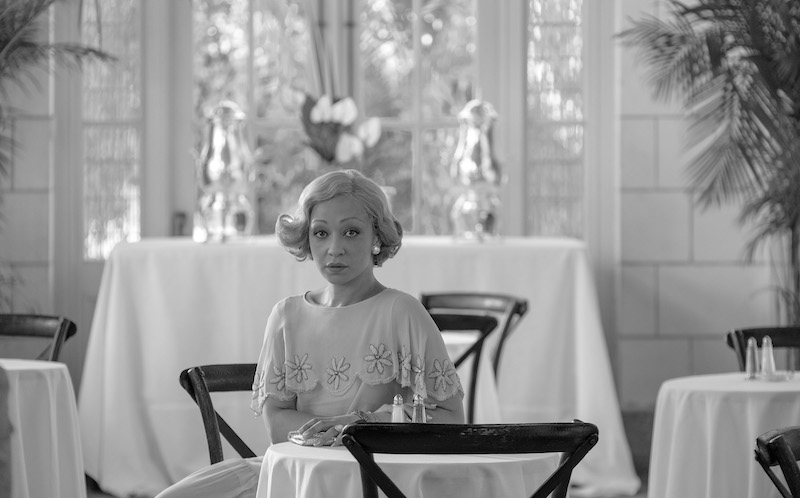
NATHANIEL: You've worked with a lot of first or second-time filmmakers. What is it about new directors that you love?
EDU GRAU: What really encourages me to go again and again to them, is the feeling that the job is an exploration. There is a passion, fearlessness, and an energy that comes from inside them to tell that story to make that thing. It's very beautiful.
You made Buried, this tiny gritty film that's all about being inventive with the camera and A Single Man which is this big glamorous thing in short succession to. Range!
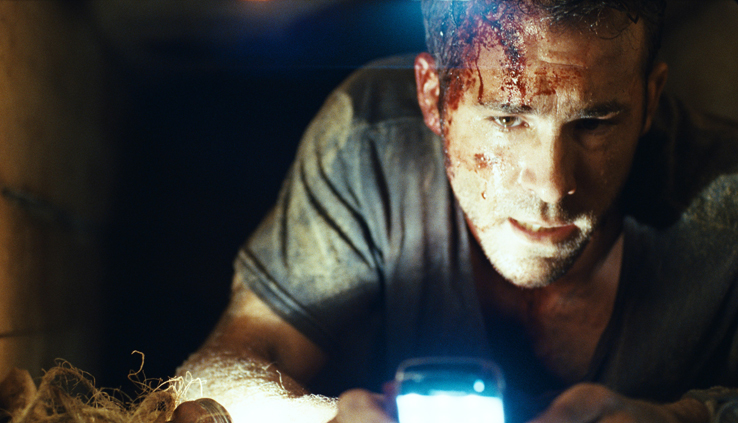 A Single Man (2009) and Buried (2010) released in quick succession made Edu Grau a DP to watch
A Single Man (2009) and Buried (2010) released in quick succession made Edu Grau a DP to watch
I try to just do what I'm passionate about. I love all genres and all kinds of movies. I'm excited to try different things and to explore. I don't want to be boxed in to one kind of movie. I try to adapt to each movie, to the script, to see what, within the parameters of that movie, is possible to do. Of course I have an aesthetic and things I like more than others but I dont want to repeat myself.
With Passing, obviously you aren't repeating yourself. It's in black and white. It's a different aspect ratio. Were these things that Rebecca Hall had in mind from the start?
These things didn't come from me. She had already achieved the difficult task of getting a black and white movie in 4:3 greenlit. She wouldn't compromise. She turned down offers to shoot in color and with a bigger budget. The visuals were totally engraved in the narrative. Black and white makes the experience totally different in terms of the world and what you see. This was beautiful challenge, a dream to receive from a director.
I know you've shot her before as an actress...
I had done two movies with her, Awakening and The Gift
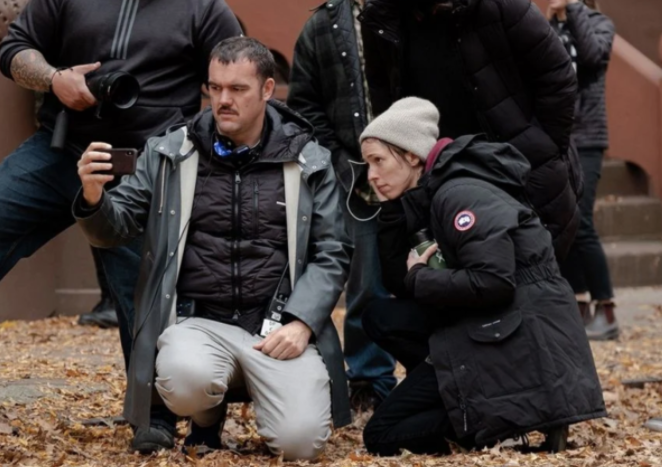 Edu with Rebecca Hall, it's their third film together
Edu with Rebecca Hall, it's their third film together
Is that why she chose you?
There was an instant connection when we were shooting. We got along, we laughed, we partied, you know. We are a very similar age, very similar sensitivity, we have a similar passion for filmmaking. So when she had a chance to direct I was an obvious choice.
Were you thinking of the assignment intellectually -- black and white kind of abstracts things but make it more real, too.
It's totally what you're saying. It makes it more abstract. By delating saturation and color, it makes it simpler to kind of understand the image. It's all about light and darkness, and everything inbetween. To make it black and white totally centers the piece, not only for the eyes of the audience but the theme.
It is quite interesting to do a film about colorism in black and white. It's interesting what it puts on the spectator, you know? We throw out alot of questions for the audience to think about. We don't give the answers.
I love the scene of Irene and Clare's first meeting in the restaurant. It makes you curious about everything but you have to kind of intuit what is going on. The camera is often so close. You're only getting pieces of what they're seeing. I guess this isn't a question, I'm just complimenting you [Laughs]
Thank, thank you. But it's also true. It's not just the black and white but it's also because of the aspect ratio. You don't see a lot of the wall. It's a factor we played with, making it very face-centric. We wanted the feeling of a beehive. The characters in their own little bubble and they sort of go around and around in this little box and that's their world. But then another character comes and shakes it up. Maybe the world is not this but something else.
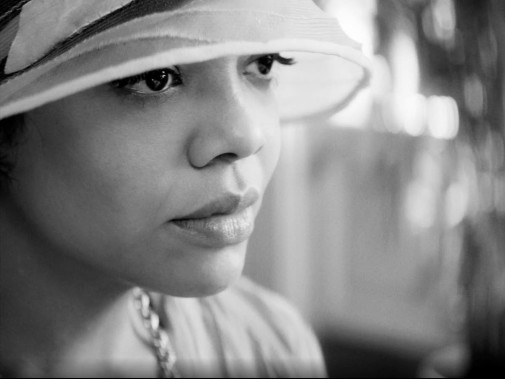
You often hear stories about Old Hollywood that the colors on set could be kind of crazy in order for the black and white to get just the right look.
Color is one of the most difficult things, in digital cinematography, to get right. When you go into a room and you're like, 'oh, this room looks great [for shooting] and then suddenly you realize how much the color is doing to the room. So for months I had my phone on a black and white setting. It's all about contrast. It was interesting as a process because black and white is not how we see the world. For Irene's house, it was very white so we painted it all a strong red which was very useful in Post-production. You could select the color and make it all darker or brighter since you're never going to see the image in color.
I know that craftsmen can't control their careers quite as specifically as, say, writers or directors do who are often creating the project from scratch. But you've done quite a few gay movies including Boy Erased and A Single Man. You even shot Lady Gaga's "Born This Way" video. Was this a conscious choice?
I also did Animals, a Spanish gay film. Some of my very good friends are homosexuals. And they do joke about how many gay films I've done!
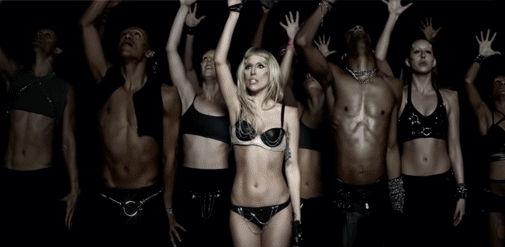
Passing can even be read as queer.
It's a hint. It's something that we talked a lot about. It's a really interesting reading as well of the movie in that it sends it in a completely different direction. Again it's one of those questions that are asked, but not answered in the narrative which is always interesting. Sexuality is part of our lives and it's always interesting to explore that for characters.
I'll tell you one thing. There are a lot of gay directors and production designer and costume designers. There are lesbian DPs but gay male DPs... not many as you would imagine!
That's surprising.
It has always been very surprising to me because it's like one of those jobs that entails sensitivity, people management, a vision of the world, aesthetic taste.
You've been a member of the Academy for awhile now. So when you're voting on the Oscars, when you watch movies are you specifically paying attention to the cinematography or...?
Cinematography is a big part of filmmaking but I look at a movie as a whole, not as a department specific thing. Of course there are some things that stand outs, but I see it as a whole and that's one of the things that I love about filmmaking is how much of a team effort it is, how much we all depend on each other. It's a combination of elements that make a good movie. There are hundreds of amazing looking movies are terrible, that don't move anyone. At the end of the day, what is important is the movie and to be as honest as possible to the vision of the director.
Because you started so young shooting your first picture in your early 20s you probably didn't have the years of mentorship some DPs get. So do you have other cinematographers you view as heroes?
Oh yeah, yeah! From past and present. There are members of the cinematography community that that's reason enough for me to see their movie in the cinema. I don't go to movies for many actors but for directors and DPs, yes. Some of them you know they're going to bring something into the world, something so beautiful, for you to learn from and enjoy. It's a joy to watch some of them work.
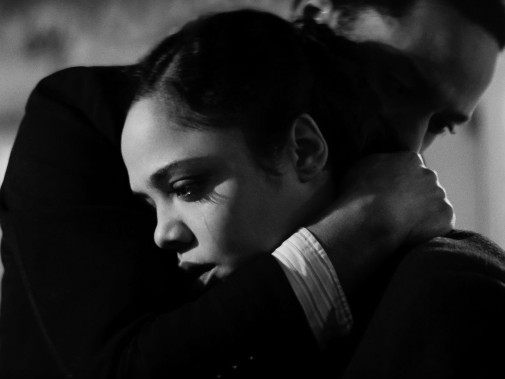
You'll be one of those people for young DPs starting out, I'm sure.
I hope so. I do try to talk with as many young people as I can. I've mentored a lot in school in Barcelona, in London and here. It's an ongoing process, learning from other people and telling stories in different ways. I got inspired by a lot of those people that I admire. And you know I put that together with Rebecca's vision and that's Passing right there. It all comes from a lot of different places and it lands into this. It's an interesting visual and narrative conversation that evolves.

Passing is currrently streaming on Netflix and highly recommended. The cinematography is nominated here in our annual awards.
 A Single Man,
A Single Man,  Best Cinematography,
Best Cinematography,  Buried,
Buried,  Cinematography,
Cinematography,  Edu Grau,
Edu Grau,  LGBTQ+,
LGBTQ+,  Passing,
Passing,  Rebecca Hall
Rebecca Hall 


Reader Comments (4)
Eduuu, guapu, ets els millor!
Well, one of the best DPs of all time was gay and Spanish, Nestor Almendros
I got super excited that the Film Bitch Awards started rolling out, but the link just led to the empty "under construction page". 🤔☹️
“Passing”’s cinematography is another skilled, thoughtful, fascinating element in an exceptional movie.
Movies entered around a female lead performance can have a tough time getting a Best Picture nomination. Consider the Best Actress nominees whose movies don’t have a corresponding nomination. Best Picture consideration focuses attention on all the elements of a movie, to be noticed and appreciated.
Movies that are about two women, rather than a lead actress surrounded by an ensemble of men, have it even tougher to get Best Picture consideration. Because a movie that’s about two women isn’t about anything Important.
And a movie about two black women, well...
(Important Movies are about Men, or even better, Ensembles of Men, or better yet, Ensembles of Men in Conflict).